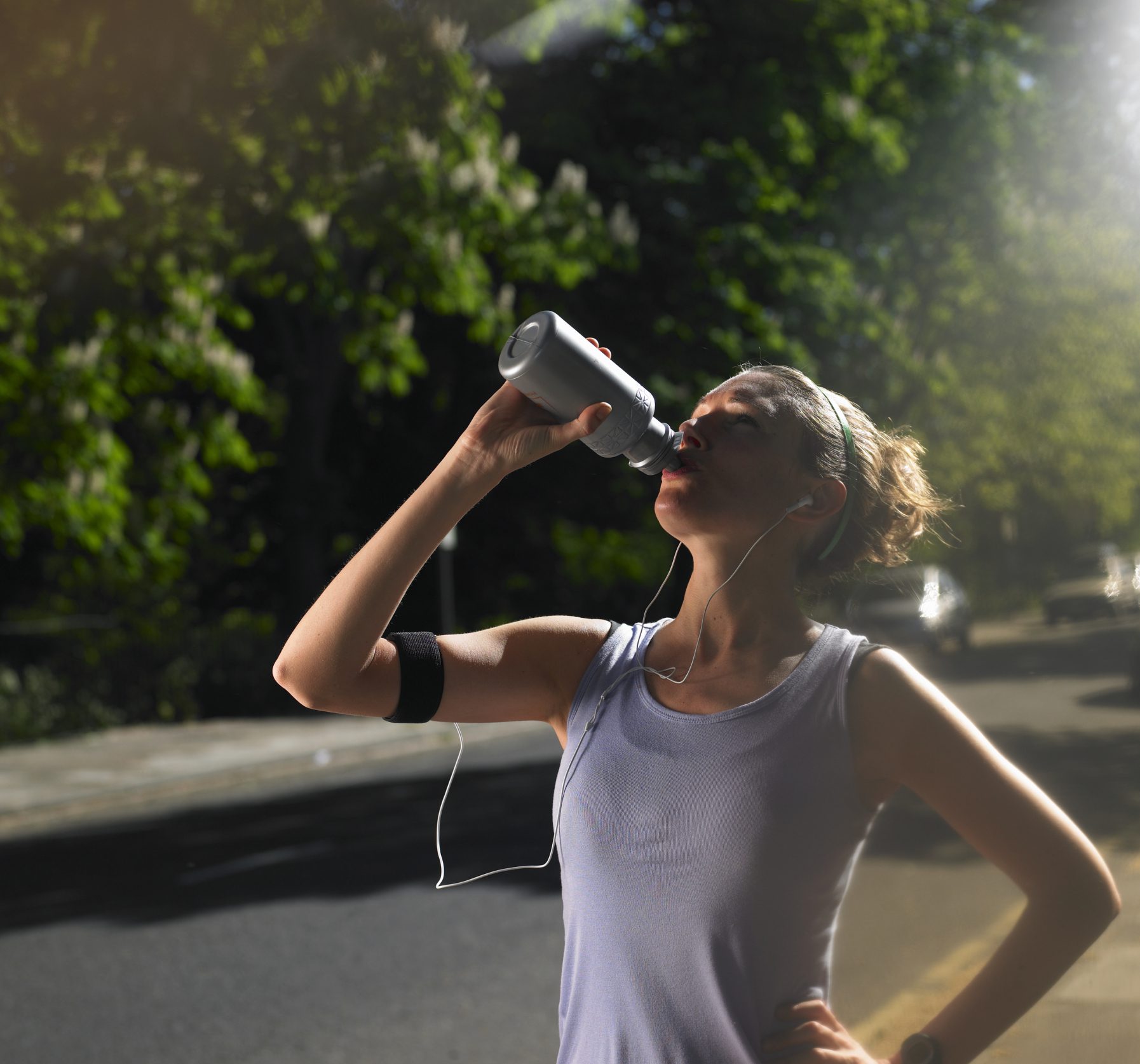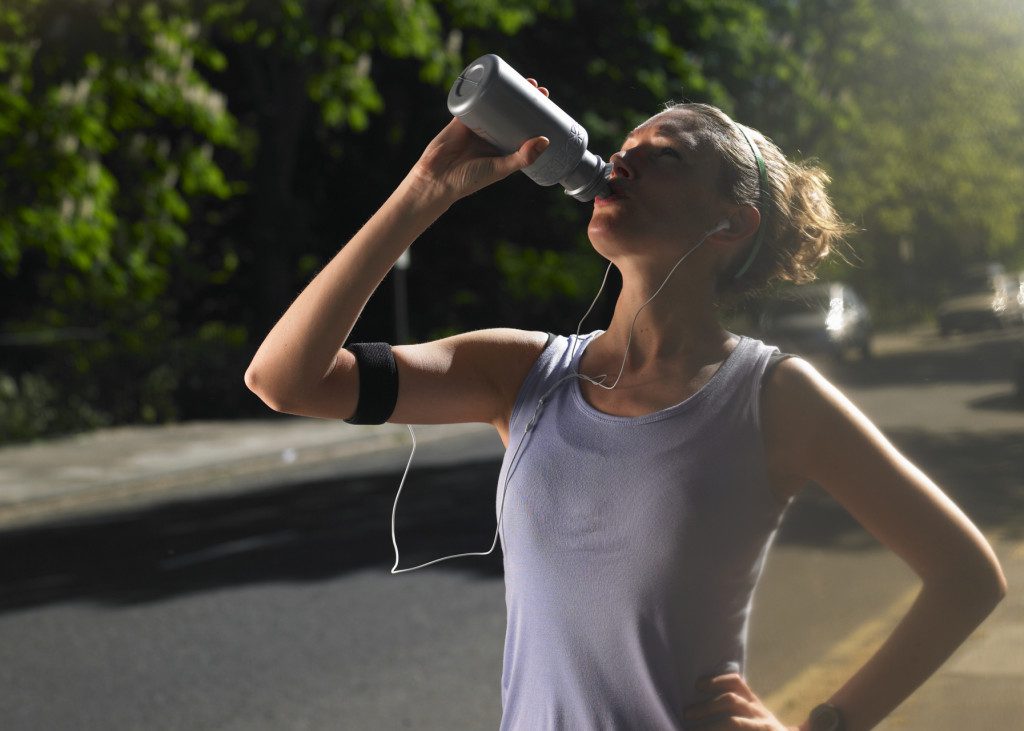Fuelling for the Long Run
Nutrition can make or break your distance dreams.

 It seems simple-the further you go, the more fuel you use. But running a half-marathon is drastically different than running an ultramarathon. You might think you’re delirious seeing potatoes, nuts or doughnuts on the ultra racecourse, but they’re there for a good reason. Before you tack another 10K onto your longest run, consider what food is going to get you there.
It seems simple-the further you go, the more fuel you use. But running a half-marathon is drastically different than running an ultramarathon. You might think you’re delirious seeing potatoes, nuts or doughnuts on the ultra racecourse, but they’re there for a good reason. Before you tack another 10K onto your longest run, consider what food is going to get you there.
Calories from carbohydrates, protein and fat are your body’s fuel. You get four calories from one gram of carbohydrate or protein and you get nine calories from a gram of fat. Because they’re burned quickly and efficiently with or without oxygen, carbohydrates are your body’s preferred fuel source for exercise. The exact amount of carbs you burn per workout depends on your fitness, intensity and energy efficiency. If you’re new to running, you’re going to use two baked potatoes to every one that a trained athlete uses for the same distance and intensity. But a top marathoner like Paula Radcliffe is going to need more macaroni than a jogger for the same route because her intensity is higher.
When you eat grain products, fruits and vegetables, milk products and sweet treats, you digest those carbs into glucose, which is stored as glycogen in your liver and muscles. Liver glycogen maintains blood glucose and muscle glycogen fuels running. Most marathoners average 100-110 calories per mile (60 calories per kilometre). Roughly three quarters of that energy is from carbohydrate combustion – 20 g of carbs per mile – but the carbohydrate fuel tank is relatively small.
Depending on your fitness and diet, you can squeeze about 450 grams of carbohydrate into your muscles, liver and blood – about 1,800 calories for the majority of runners. Trained athletes can store more – up to 800 grams. At 60 calories per kilometre, you could theoretically run for 35K on carbohydrates alone, but to some degree, you use all three calorie sources. The “wall” – where you run out of liver glycogen – is usually around the 32K mark. Despite being able to store more carbohydrates, highly trained athletes hit the wall, too, usually because they’re running at a faster pace.
When you breeze through a half-marathon, you’re likely running at a quicker, more intense pace than a full marathon. Even though your body has enough carbohydrate to fuel the entire 21.1K, sports drinks are proven to improve performance if you’re working hard enough. The other danger in distance running, hyponatremia (low blood sodium), is less frequent in the half-marathon. If you drank only water for 21.1K, you’d be slower than you would if you had a sport drink, but you’d still finish.
Doubling that distance, few humans have enough glycogen to cover 42.2K. Without fuel, muscle glycogen is depleted and your liver switches into overdrive to feed both muscles and blood glucose. Amino acids from protein breakdown are then used to make glycogen to fill the liver. If you don’t eat while running distances greater than 30K, you’ll literally be burning your muscles. To avoid muscle catabolism, take advantage of those nice people handing you sports drinks, gels and bars. Carbs prevent muscle destruction by keeping glucose in your system.
You might see peanut butter sandwiches or pizza on food trays at ultramarathon race. For both marathons and ultras, protein is critical. Just a small amount of amino acids stalls muscle breakdown as your liver works to maintain blood glucose. For every four grams of carbohydrate you eat in runs lasting longer than a couple of hours, you should eat a gram of protein, too.
For ultramarathons, the slower pace means the balance of carbohydrate and fat burned for fuel is almost equal, and the lower intensity allows the body to tolerate solid food. Ultrarunners need calories from carbs, protein and fat, but concentrated energy sources, like syrups and potato chips, could upset the stomach. Celebrity ultramarathoner Dean Karnazes may eat pizza, pie and burritos on the run, but you should try these foods before your race.
Fuelling should begin within the first 3K of a marathon or ultra. Aim for a maximum of 60 grams of carbs and 15 grams of protein per hour, in addition to water and electrolytes based on your sweat rate. Mark quarters on your water bottle to split the hourly total into 15-minute increments. In the marathon, protein may not be easily tolerated, so do some training runs with protein-containing drinks.
Unfortunately, you can’t stockpile fuel while you’re running ultras. When you’re working at 70-80 per cent of your VO2 max, the maximum your metabolism can handle is 60 grams of carbohydrate per hour – and this hardly varies with body size or fitness level. Studies show most humans can only absorb a maximum of 240-280 carbohydrate calories per hour into the energy cycle.
The further you run the more calories you’ll use from all sources. Use the following breakdown by distance to see where those calories need to come from and the minimums you need. Remember, what you eat depends on how far you go.
HALF MARATHON
Intensity: High
Calories: 1,300
Fluid: 2 L
Goal: maintain hydration.
Fuel used: 250 g carbohydrate.
Fuel intake: None necessary. Sports drinks may benefit, especially if glycogen stores are low, and temperature or intensity is high. Experiment during training.
FULL MARATHON
Intensity: Moderate to High
Calories: 2,600
Fluid: 4-5 L
Goal: Maintain glycogen stores and hydration.
Fuel used: 450 g carbohydrate; some protein and fat.
Fuel intake: Maximum 60 g of carb with 15 g of protein per hour. Sports drinks are critical. Gels and bars may be useful, but do not consume more than maximum. Do not eat fatty foods.
ULTRAMARATHON
Intensity: Low to Moderate
Calories: Minimum 3,000, plus daily metabolism (400 or more, depending on race length)
Fluid: 750-1000 mL per hour
Goal: Maintain glycogen stores and hydration, limit protein catabolism.
Fuel used: 600-800 calories per hour; 50% carbohydrate, up to 50% fat, some protein depending on carb intake.
Fuel intake: Limit to 280 calories per hour. Aim for 60 g carbohydrate and 15 g protein for hour, split into 15-minute increments. Sports drinks, bars and gels are vital. Taste fatigue plays a role; vary your drink and bar flavours. Eat savoury foods like salted pasta, soups, potatoes and pretzels. High-fat foods like nuts and cheese will be needed in events 100- miles and longer.
Bobbi Barbarich is a contributing editor at Canadian Running. She lives in Edmonton.


